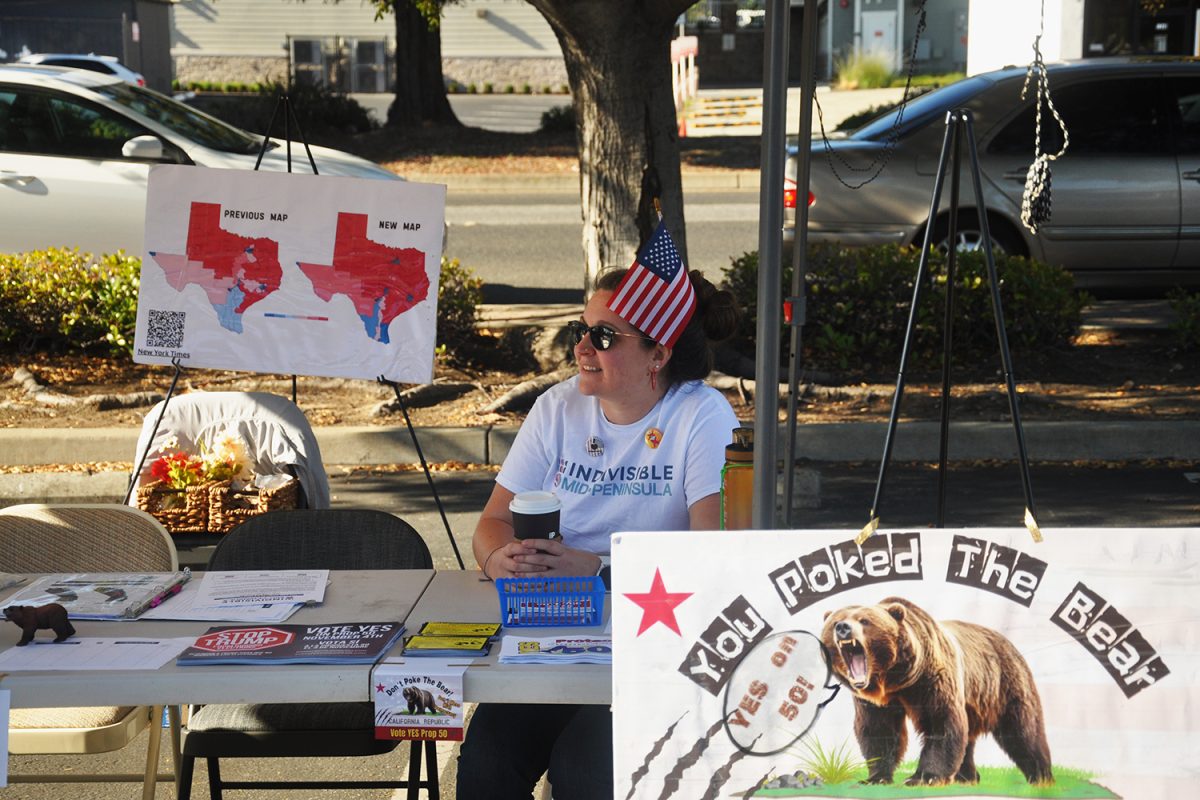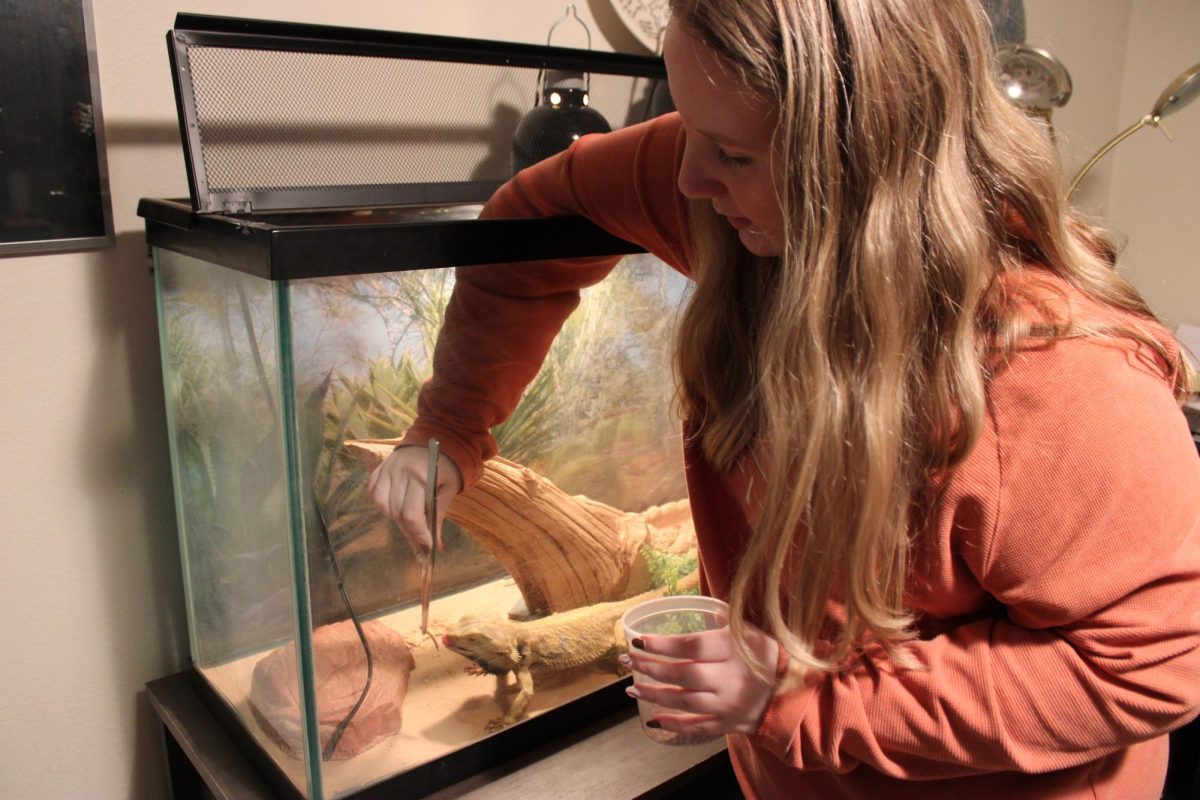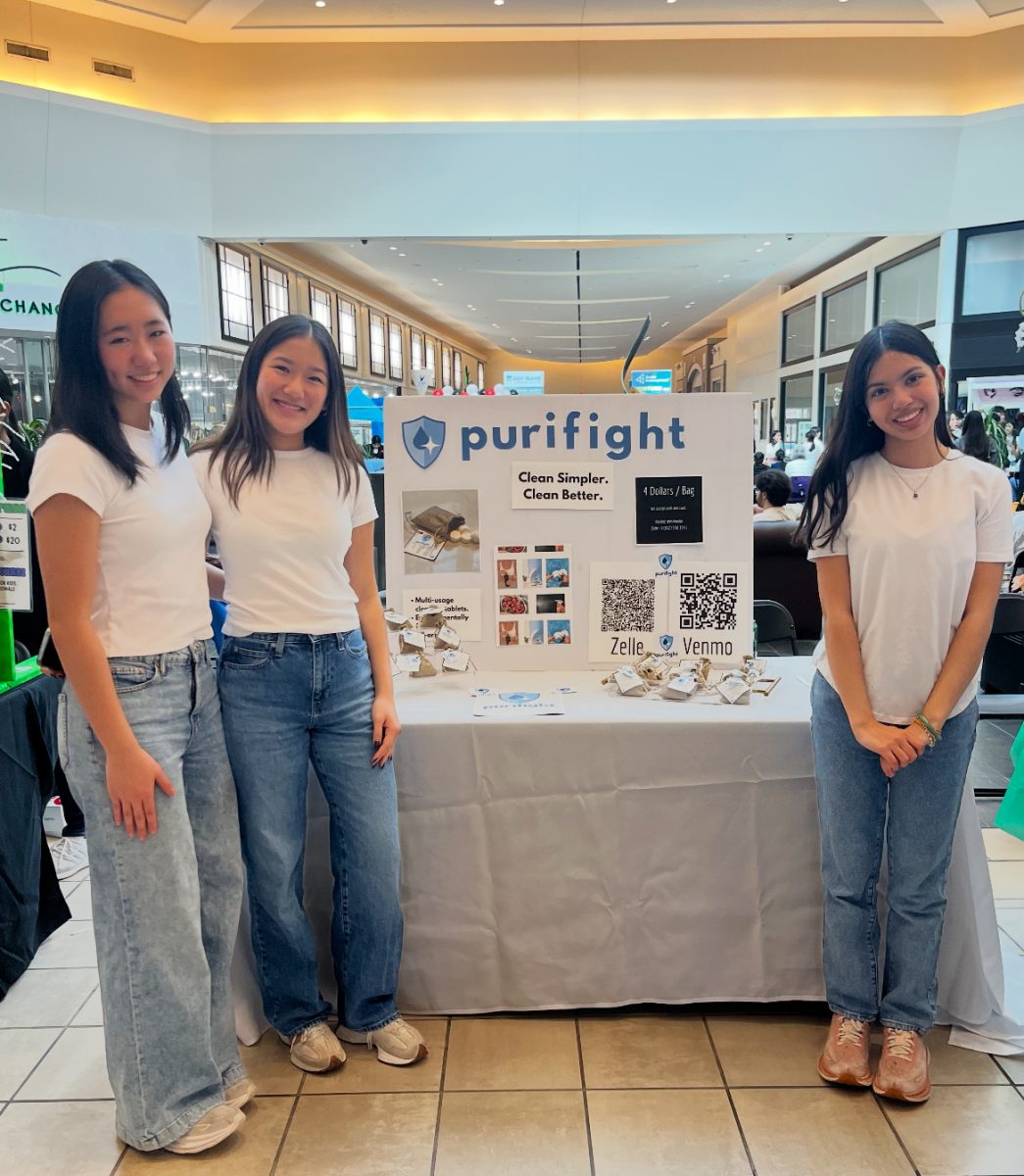When Ellie Norton, freshman, discovered two eggs in her crested geckos’ Max and Mush’s enclosure, she was shocked to see them. She originally thought she only had male geckos.

“I was surprised when I found out that I had a girl,” Norton said. “I found eggs. I’m super happy now because I can see the way the different genders act.”
Norton remembers the moment when she connected with her third crested gecko, Mush.
“When we went to get a new one, and the first time I saw the female, I was like ‘I want to see that one.’” Norton said. “She immediately jumped on me, and that’s how I knew she was the one.”
Norton said taking care of the eggs isn’t hard, but she has to know how to keep them healthy enough to hatch.
“The eggs usually take two to four months to hatch,” Norton said. “You put them in rocks that can be wetted and helped with moisture, but you have to keep them in heat if you want the process faster for them to hatch.”
Like 97% of pet owners in the world who believe their animals to be family, according to Pew Research, the Norton family considers their animals to be vital members of their household.
The family has 12 animals:
- Two dogs, Bailey (9 years old) and Louie (5 years old).
- Two leopard geckos, Ziggy (1 year old) and Clementine (2 years old).
- A bearded dragon, George (9 years old).
- A day gecko, Ivy (3 years old).
- Two crested geckos, Max (1 year old) and Mush (11 months old).
- A chameleon, Rex, (5 years old).
- Two betta fish, Chuck and Kota.
- An axolotl, Frankie (9 months old).
Norton said the animals have not only helped her bond with her family, but they’ve also assisted her personally.
“I’ve had a lot of instances where I’m really stressed or I’m not doing the best mentally, and I’ll just get my crests or geckos or hang out with the dogs,” Norton said. “They’re like a distraction to get my mind off stuff.”
David Norton, Ellie’s father, grew up with exotic animals as family pets, and said he knew his friends had pets like dogs and cats instead.
“I always felt unique because I always had lizards,” David said.
David said as an adult, he wanted to show his daughters that animals were interesting. So, he allowed “weird animals” into their home.
David said he was especially excited when his family realized that Max and Mush were having babies.
“I always wanted to have a breeding pair,” David Norton said. “And now my girls get to have it.”
Lainee Norton, senior, said her animals have helped her become more mature.
“I think it teaches responsibility and I just think it’s really fun,” Lainee Norton said. “It’s definitely important to be able to grow that empathic part of your brain.”
Childhood caregiving, especially to animals, does foster several beneficial factors to a person’s mind, such as friendship behavior, responsibility and compassion according to the National Institute of Health.
Growing up, Lainee said she was inspired to take care of animals by her dad, who is encouraging her to pursue wildlife biology at UC Santa Barbara.
“Whenever I was at my grandma’s house, he and I would always go on walks and catch lizards and skins and turtles,” Lainee said. “They always told me stories of holding a scorpion, and so I’ve really had a passion and love for animals my entire life.”
Not only did the family rescue most of their animals, but the Norton family can’t turn their heads from other creatures in need.
“We bring it home because that’s just who we are. If we can’t afford it or we don’t have the space for it, then we’ll just take care of it,” Lainee said. “We try to do what we can.”
This story was originally published on Marquette Messenger on October 13, 2025.




































